-
 bitcoin
bitcoin $87959.907984 USD
1.34% -
 ethereum
ethereum $2920.497338 USD
3.04% -
 tether
tether $0.999775 USD
0.00% -
 xrp
xrp $2.237324 USD
8.12% -
 bnb
bnb $860.243768 USD
0.90% -
 solana
solana $138.089498 USD
5.43% -
 usd-coin
usd-coin $0.999807 USD
0.01% -
 tron
tron $0.272801 USD
-1.53% -
 dogecoin
dogecoin $0.150904 USD
2.96% -
 cardano
cardano $0.421635 USD
1.97% -
 hyperliquid
hyperliquid $32.152445 USD
2.23% -
 bitcoin-cash
bitcoin-cash $533.301069 USD
-1.94% -
 chainlink
chainlink $12.953417 USD
2.68% -
 unus-sed-leo
unus-sed-leo $9.535951 USD
0.73% -
 zcash
zcash $521.483386 USD
-2.87%
What is Ethereum's Validator Node?
Validator nodes, the cornerstone of Ethereum's Proof-of-Stake system, are responsible for proposing and validating blocks, securing the network's integrity and fostering decentralization.
Feb 18, 2025 at 05:31 am
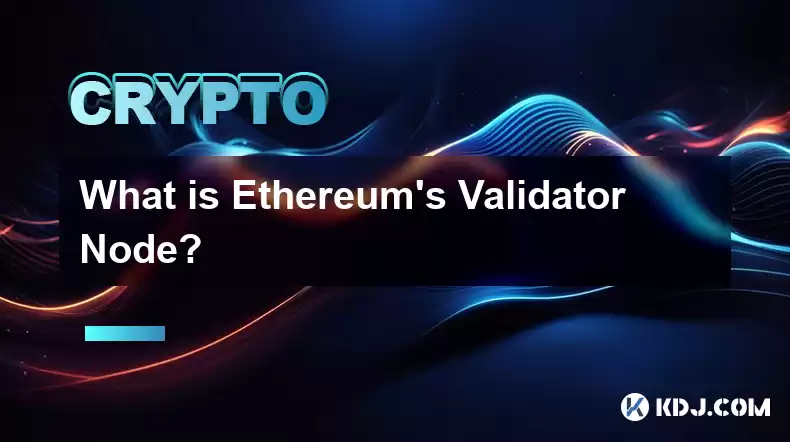
- Understanding Ethereum's Consensus Mechanism: Proof-of-Work vs. Proof-of-Stake
- Role and Responsibilities of Validator Nodes in Ethereum's Proof-of-Stake System
- Process of Becoming a Validator Node: Requirements, Hardware, and Software
- Rewards and Penalties Associated with Running a Validator Node
- Importance of Validator Nodes in Maintaining Ethereum's Network Integrity
Ethereum's transition from Proof-of-Work to Proof-of-Stake with the Merge upgrade shifted the network's consensus mechanism. In Proof-of-Stake, validators are randomly selected to validate blocks and earn rewards based on their stake.
Role and Responsibilities of Validator NodesValidator nodes are the backbone of Ethereum's Proof-of-Stake system. Their primary responsibility is to:
- Propose new blocks to the blockchain
- Validate and attest to the validity of blocks proposed by others
- Monitor the network for irregularities
- Participate in governance decisions
Becoming a validator node involves several steps:
- Meet hardware and software requirements: Hardware includes a dedicated computer with substantial storage and memory. Software consists of the Ethereum client and staking software.
- Stake 32 ETH: Validators must stake a minimum of 32 ETH, which acts as collateral for their participation in the consensus process.
- Run a validator client: The validator client connects the node to the Ethereum network, enables block proposal and attestation, and manages the node's stake.
Validators earn rewards in ETH for proposing and validating blocks. Rewards are proportional to the size of their stake. Penalties are imposed for improper behavior, such as double-signing blocks or missing attestations.
Importance of Validator NodesValidator nodes play a crucial role in maintaining Ethereum's network integrity:
- Decentralization: Validator nodes are distributed globally, preventing any single entity from controlling the network.
- Security: The Proof-of-Stake mechanism incentivises validators to act honestly and secure the network.
- Efficiency: Compared to Proof-of-Work, Proof-of-Stake is significantly more energy-efficient.
- What are the benefits of running a validator node?
- Earnings in ETH
- Contribution to Ethereum's security
- Participation in governance decisions
- Are there any risks associated with running a validator node?
- Penalties for improper behavior
- The possibility of losing staked ETH if the node fails to validate blocks consistently
- What is the average return on investment for running a validator node?
- The return on investment varies depending on the number of validators in the network and the price of ETH.
- Is it possible to delegate my stake to a validator?
- Yes, staking pools allow individuals to delegate their stake to reputable validators and earn rewards.
Disclaimer:info@kdj.com
The information provided is not trading advice. kdj.com does not assume any responsibility for any investments made based on the information provided in this article. Cryptocurrencies are highly volatile and it is highly recommended that you invest with caution after thorough research!
If you believe that the content used on this website infringes your copyright, please contact us immediately (info@kdj.com) and we will delete it promptly.
- Adaptive Payments, Digital Commerce, Payment Infrastructure: New Systems Reshape Transaction Landscapes
- 2026-02-11 18:45:01
- Toobit's FWX Trading Launchpad Sells Out in Record Time, Signaling a New Era for Crypto
- 2026-02-11 19:55:01
- Mastering the WoW Token: Your Ultimate Selling Guide for HDG
- 2026-02-11 19:50:02
- Montellis Group: Decoding the Crypto Market's Grown-Up Phase in 2026
- 2026-02-11 19:50:02
- Coinbase, Nevada, Security: Navigating the Regulatory Minefield with a Hard Hat On
- 2026-02-11 19:45:01
- LayerZero's Zero Blockchain: A New Era for Institutional Finance and ZRO's Ascending Star
- 2026-02-11 19:45:01
Related knowledge
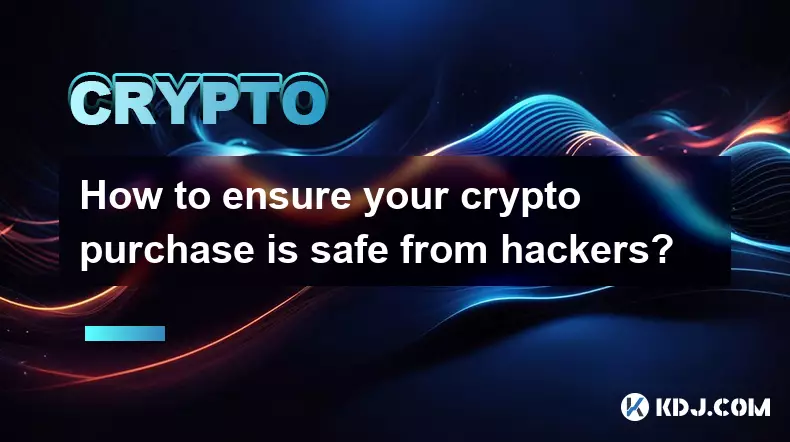
How to ensure your crypto purchase is safe from hackers?
Jan 28,2026 at 11:19pm
Secure Wallet Selection1. Choose hardware wallets for long-term holdings—devices like Ledger and Trezor isolate private keys from internet-connected s...
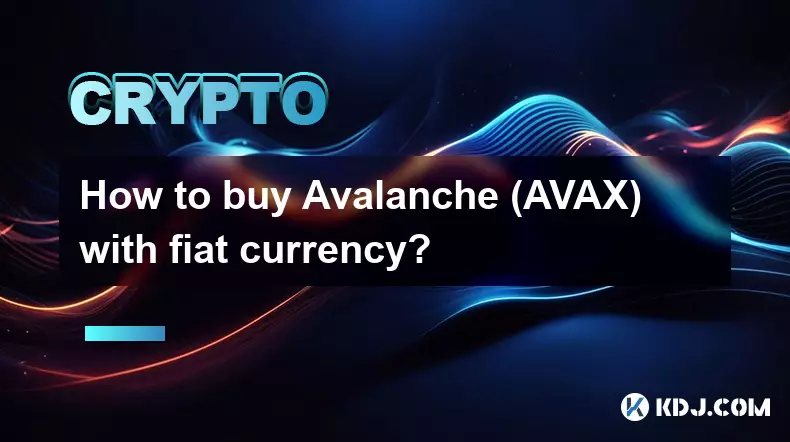
How to buy Avalanche (AVAX) with fiat currency?
Jan 29,2026 at 12:40pm
Choosing a Reliable Exchange Platform1. Identify exchanges licensed in your jurisdiction that support AVAX trading pairs with major fiat currencies li...
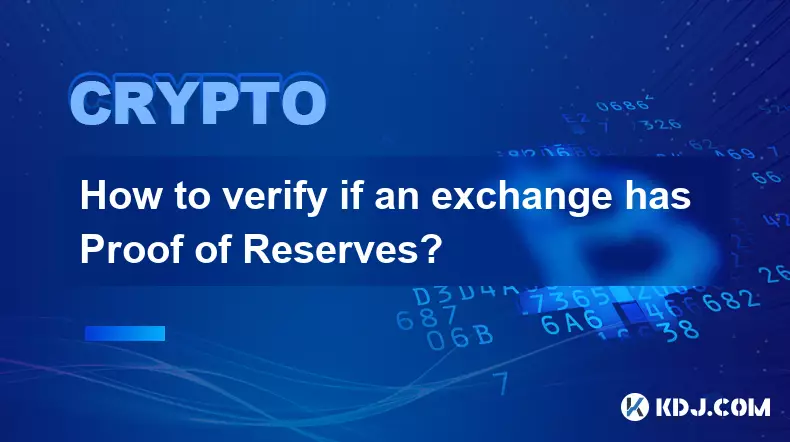
How to verify if an exchange has Proof of Reserves?
Jan 30,2026 at 06:39am
Understanding Proof of Reserves1. Proof of Reserves (PoR) is a cryptographic audit mechanism that demonstrates an exchange holds sufficient on-chain a...
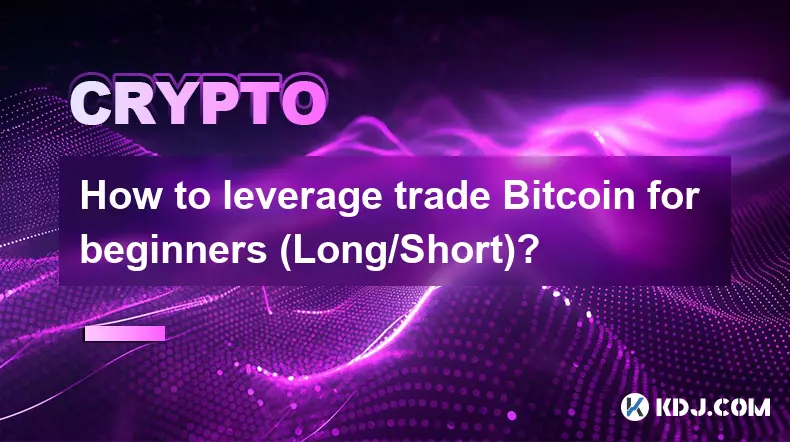
How to leverage trade Bitcoin for beginners (Long/Short)?
Jan 29,2026 at 03:19pm
Understanding Bitcoin Price Movements1. Bitcoin’s price is heavily influenced by macroeconomic indicators such as interest rate decisions, inflation d...
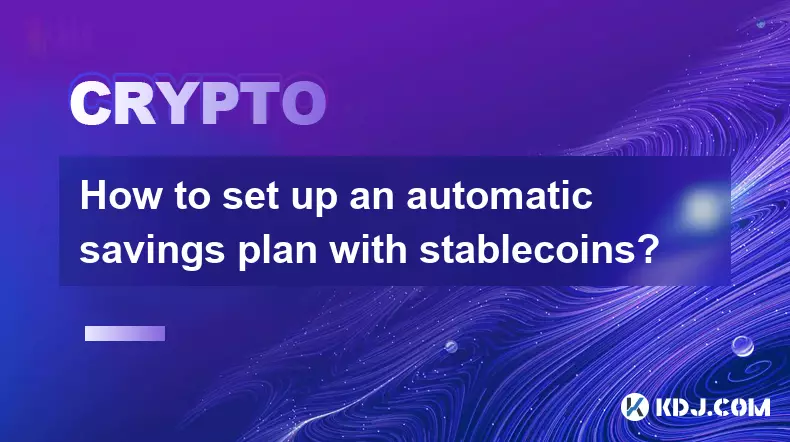
How to set up an automatic savings plan with stablecoins?
Jan 29,2026 at 06:39am
Understanding Stablecoin Savings Mechanics1. Stablecoins are digital assets pegged to fiat currencies like the US dollar, designed to minimize volatil...
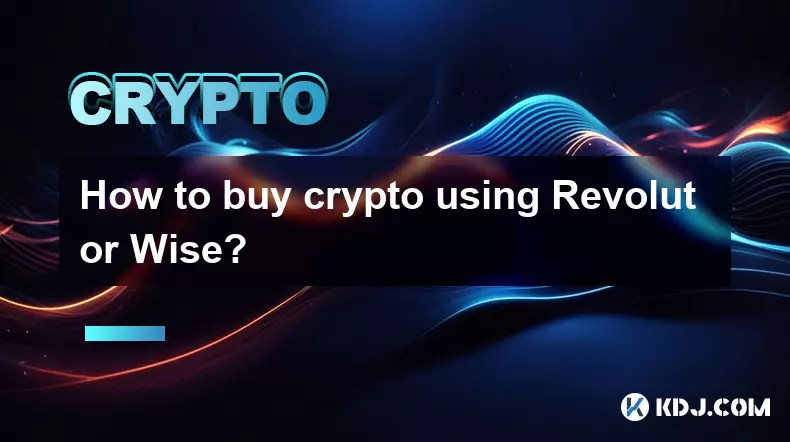
How to buy crypto using Revolut or Wise?
Jan 28,2026 at 11:00pm
Setting Up Your Revolut Account for Crypto Purchases1. Download the Revolut app and complete identity verification using government-issued ID and a se...

How to ensure your crypto purchase is safe from hackers?
Jan 28,2026 at 11:19pm
Secure Wallet Selection1. Choose hardware wallets for long-term holdings—devices like Ledger and Trezor isolate private keys from internet-connected s...

How to buy Avalanche (AVAX) with fiat currency?
Jan 29,2026 at 12:40pm
Choosing a Reliable Exchange Platform1. Identify exchanges licensed in your jurisdiction that support AVAX trading pairs with major fiat currencies li...

How to verify if an exchange has Proof of Reserves?
Jan 30,2026 at 06:39am
Understanding Proof of Reserves1. Proof of Reserves (PoR) is a cryptographic audit mechanism that demonstrates an exchange holds sufficient on-chain a...

How to leverage trade Bitcoin for beginners (Long/Short)?
Jan 29,2026 at 03:19pm
Understanding Bitcoin Price Movements1. Bitcoin’s price is heavily influenced by macroeconomic indicators such as interest rate decisions, inflation d...

How to set up an automatic savings plan with stablecoins?
Jan 29,2026 at 06:39am
Understanding Stablecoin Savings Mechanics1. Stablecoins are digital assets pegged to fiat currencies like the US dollar, designed to minimize volatil...

How to buy crypto using Revolut or Wise?
Jan 28,2026 at 11:00pm
Setting Up Your Revolut Account for Crypto Purchases1. Download the Revolut app and complete identity verification using government-issued ID and a se...
See all articles










































































